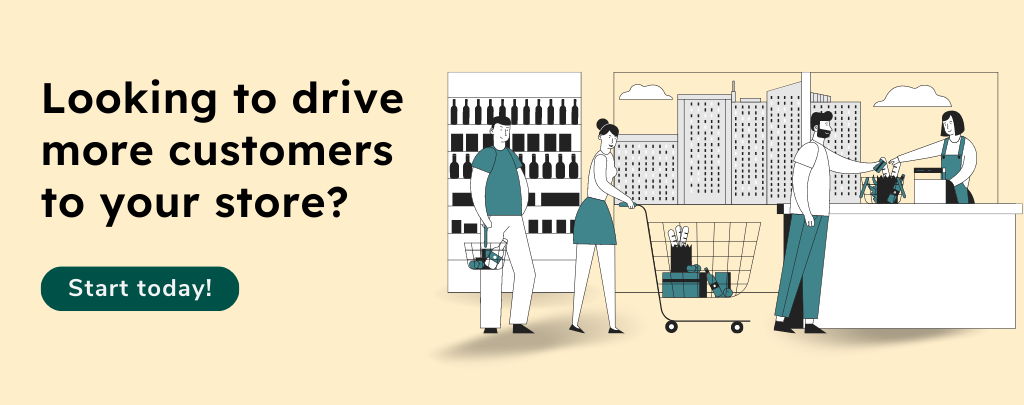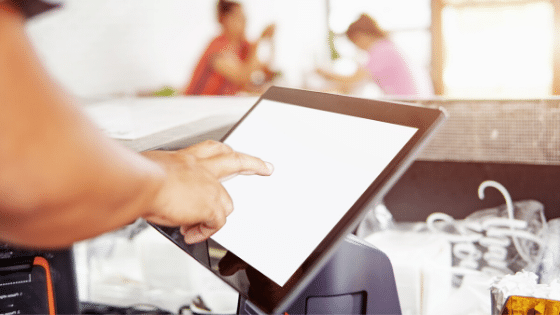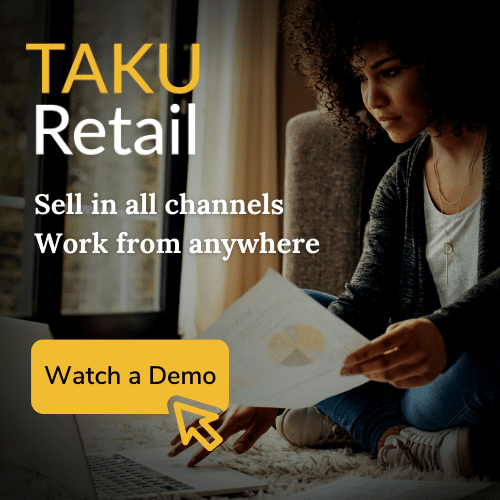Owning the right POS system is essential to the success of any retail business. Today, a retail POS system can do much more than just handle payments and record sales – innovative POS technology now functions as a complete retail management system. These systems are known as cloud retail software.
In other words, a feature-rich retail POS system acts as a tool that enables you to both manage and grow your store.
But with so many different retail POS software in the market, how do you find the right one for your retail business?
Whether you’re looking for your first ever POS software or looking to upgrade to a new one, finding the right solution for your retail store doesn’t need to be difficult.
In this article, we’ve broken down the most important features to consider when choosing a retail POS system.
Point of sale features
Let’s begin by discussing all of the features needed in the sales portion of your retail POS. This covers all of the functionalities and features needed for a fast and easy checkout experience.
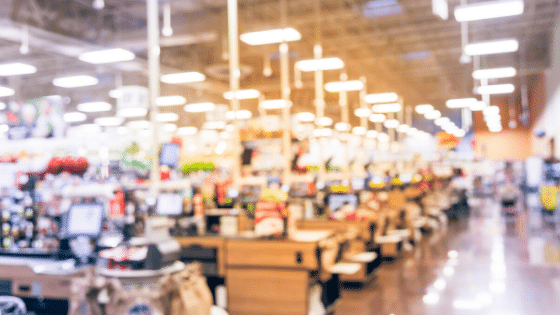
1) Easy to navigate sales screen
In order to ensure a fast checkout experience, it’s important to look for a POS system that is user friendly and designed for minimum clicks. Cashiers shouldn’t have to leave the sales screen in order to complete a transaction.
2) Fast barcode scanning
Your retail POS system should be designed for quick scanning speed while giving you the ability to quickly recall your last search. It’s also important that your POS software can handle multiple barcodes per SKU (an internal code, a shortcode, a vendor code(s), and a manufacturer code).
3) Advanced inventory search
Besides handling a high volume of inventory and transactions (read inventory features below), your retail POS software needs to have smart search functions. This will allow you and your employees to search for products by keyword, description, barcode or tag in case labels fall off or are not scannable.
4) Inventory management
Inventory is the most important asset you have as a retailer which is why it is necessary to track and keep an accurate count of all of your merchandise.
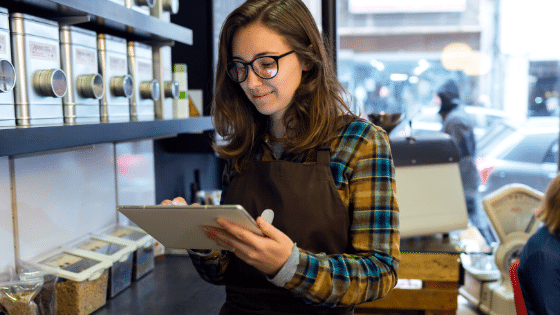
The inventory management component of your retail POS will help you replace tedious methods of inventory control resulting in time, money, and effort saved.
5) Mobile accessibility
More and more retailers are recognizing the benefits of cloud technology and consequently, cloud POS adoption is growing at a significant rate. Cloud POS software stores data in the cloud giving you the benefits of remote accessibility, cost-savings, and real-time data accuracy. Click here to learn more about the benefits of cloud POS technology.
You’ll also want to make sure that your retail POSis completely mobile-friendly and can be run on any device. This will enable you to ring in sales anywhere in your store (e.g. on an tablet or mobile phone) which means a faster checkout experience for your shoppers.
6) Cross-platform access
Having a POS software that is compatible on any device is important for emergency instances when your store’s internet connection goes down. In the past, it was assumed that offline capability is the best alternative when internet access is down. But the fact is, credit and debit cards are the most popular payment methods for shoppers today, and PINpads won’t work without an internet connection.
Some systems offer the ability to store credit card details in the device until internet is back up but not only is it riskier to shopper payment details, you’re taking the chance of the stored payments not getting approved.
In today’s market, offline capability is not as useful as a smart POS platform that can be logged in from any device. When internet goes down, it’s as simple as securely logging in with a mobile device with data to continue ringing in sales.
7) User access rights
It is likely that you will have multiple people working in your business. Which means that your retail POS will need to be able to identify different users and give them tailored access to the system based on their role. User access rights also enable store owners to limit permissions on certain features in your POS (for ex: reports, etc.).
8) Scalability
Look for a POS software that will grow with you as your retail operations scale. Your retail POS should have the following features: the ability to handle high transaction and inventory volume, international tax settings, multi-currency handling, unlimited stores, selling zones and multiple stock allocations.
These features will allow you to grow and scale with your POS software. Some cloud POS software have limits on the number of users and stores – meaning if you eventually outgrow your existing system, you will need to invest a considerable amount into upgrading or switching to another POS altogether
9) Customer relationship management (CRM)
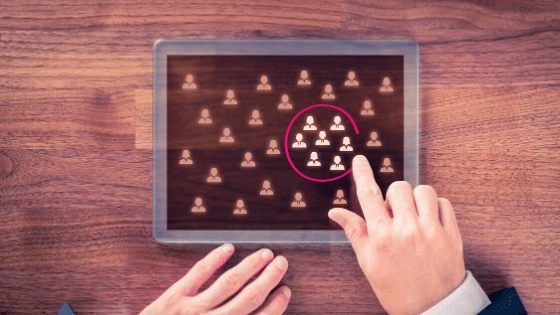
The CRM component of your retail POS software stores shopper information and allows you to better manage your customer base. It can generate huge benefits for your store – including better customer relationships, sales reports that allow you to make better business decisions and more efficient operations. These benefits ultimately lead to more sales.
10) Bulk item import
For fast POS onboarding, you will want to select a retail POS that can import all of your inventory and customer details. Otherwise you will be stuck manually uploading your inventory – which is an extremely tedious and time consuming task.
11) Built-in training tools
Smart POS systems today will have self-service functions such as built-in chat support, online knowledge portals and even step-by-step guided products tours. Not only does this minimize your onboarding costs, it ensure that staff can quickly learn how to use the system at their own convenience.
12) Marketing integrations
Traditional point-of-sale systems are essential to retail operations management but modern cloud POS systems are data-driven which means you can now use your retail store data to drive digital marketing. A POS that has built-in marketing tools will allow you to streamline your marketing efforts so that you can sell more. For example, a POS that integrates to Google will help your retail business appear higher up in search results – resulting in more local foot traffic and sales.
TAKU Retail POS is designed for high traffic retailers looking to increase foot traffic to their physical stores. To keep the customers flowing into your store click below.
